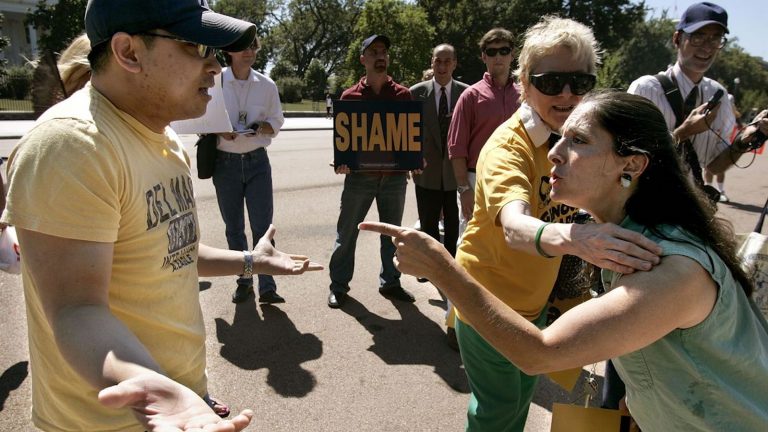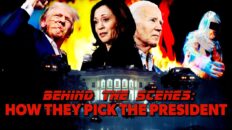Well, will he or won’t he?
Forget the looming midterms. The top-of-mind question every politico scribbler is currently asking: Will Donald Trump, despite his legal foibles, make a try at reclaiming the presidency? Like Aragorn II, the elephantine crown is his for the taking. The Times’s own Trump-whisperer Maggie Haberman thinks the former president doesn’t have a choice but to go Grover—Cleveland, that is. Only the gauntlet he once bested stands in his way: the academic-media-political complex that will once again besmirch, defame, and otherwise discredit the Trump name. And that’s if the Florida expat isn’t indicted first.
But before the cordite bangs and the ‘24 race touches off, the poor reading public is being subjected to more think pieces on Trump’s to-run-or-not-to-run dilemma than is humanly possible to wholly digest. Most are laughably negative: prestige organs decrying Trump’s incivility while slathering unctuous double-spread profiles to the daughter of the Iraq War architect. Some are so rah-rah reverential to praise-needy one-termer that Heaven’s Gate disciples might balk.
There is one stand-out: “He’s Still the One,” courtesy of conservative-nationalists Sohrab Ahmari and Matthew Schmitz. The piece reads as “The Flight 93 Election” redux. The sense of urgency, the warnings of late-republic decadence, the dichotomous choice, the “one above all else” impassioned plea—Ahmari and Schmitz make a compelling case for the return of the Don… except that it’s 2022, we already experienced four years of Twitterer-in-Chief, and besides a tax cut and no new wars (a laudable achievement!), America changed very little under Trump’s tutelage, pandemic notwithstanding.
One part of the polemic was unique, and not just the superb idea of having an aging Orleans play one of their dual hits during Trump’s inauguration. (Elton John may not return calls from the Oval after the current president clumsily faulted him for spurring AIDS research.) “[Trump] also disrupted the broad trend toward depoliticization,” Ahmari and Schmitz argue. “From immigration to transnational governance, elites in the years before Trump had removed fundamentally political questions from the realm of political contestation. Voters’ voices on these issues mattered far less than the determinations of elites wielding market rationality and supposedly non-political ‘expertise’—which just happened to serve their own interests.”
Take heart, libertarian reader! I know the above triggered a bright, Soviet red alarm inside your head. Here, try these Bastiat smelling salts I purchased off LewRockwell.com. The acrid jolt will ignite your senses and have you reciting the “The Candlemakers’ Petition” in no time.
I twig your triggeredness: I mean, “voters’ voices” over “market rationality”? Pathos over reason? Nous over ratio? That doesn’t have a whiff of statist industrial policy, it’s socialistically aromatic. Truly eau de Marx stuff. Replacing the market’s invisible hand with the grubby hand of low-info voters is the kind of redistributionist dogma that’s dragged many countries into economic calamity, complete with bureaucratic spoilage and material deprivation. Let voters start picking the price of milk and soon cows will be more valuable than gold.
Direct democracy is mob rule, said all the currencied founding fathers. Shouldn’t we heed their word?
Only to a point. (Even the founders’ wisdom had its limits: see Ben Franklin’s preference for air baths in the buff over reliable soap and water.) As with all abstract ideologies, purely pursuing the telos without regard for missteps or collateral damage is no better than acting on whim. Voters can be fickle, self-interested, and short-sighted. Most lack consistent beliefs, viz. fiscal conservatives unquestioningly handing the Pentagon a carte blanche, #MeToo liberals swooning over the lecherous Andrew Cuomo. Impulsive ballot-casters can’t be relied upon for stability, hence constitutional safeguards like the Bill of Rights that backstop the worst policy plebiscites.
Bad as prickly voters are, though, our bureaucratic elites have proven just as myopic and selfish in practice. Moreover, the rise of the insulated professional managerial class is leading to the tacit tyranny of expertise.
Consider the online synopticon that’s quickly commandeering and assimilating the field of public health. What Aaron Kheriaty calls the “biomedical security state” got its first real foothold during the COVID crisis, when many countries adopted digital vaccine passports, which had no effect on stopping the virus’s spread. China, of course, used social credit and invasive surveillance to literally seal citizens inside their cramped apartments to contain the virus. It’s only a matter of time before the same technology that enforced immunologically circumscribed travel is used to waylay wrongthinkers who post offensive Facebook memes.
Another gold star in our elites’ incompetence cahier was for COVID-inspired school lockdowns, which knocked kids tuitionally back a few years in exchange for avoiding a virus their young lungs had a 99.9998% chance of beating. The country’s leading light on immunology knew school closures would lead to learning loss but didn’t care a hang. Teacher unions colluded with bureaucrats to keep class closed, details of which emerged two years after the fact. When parents publicly objected to prolonged “remote learning” and left-wing curricula, they were branded enemies of the state by unseen functionaires. In Kafka-esque fashion, the resulting documentation is the subject of legal ping pong.
Further examples of elite-politic failure: deindustrialization and fentanyl abuse racking the Rust Belt; offshoring of crucial manufacturing sectors, such as in semiconductors and generic drugs, that leave the country vulnerable to supply chain disruptions; the encouragement of woke, oikophobic ideology that engender self-hatred among the impressionable populace; mis-and-unuse of local law enforcement to do the very basic job of protecting life and property.
There’s also the rage fodder pumping through the news-information ecosystem, stirring the country into a nervous wreck. “Deaths of despair” are on the rise, as is economic anxiety. Fred Reed observed six years ago that America “seems angry—quietly so, not sure what to do about it, but looking for someone to hit.” Our emotional state has only foamed more since then, and seems at a boiling point. Modern journalism—largely staffed by upper-middle class professionals—trades exclusively in distemper.
The elite vanguard has failed in its duty to maintain societal cohesion. Alex Kaschuta says “all politics is elite politics,” and elite governance necessarily flows down to us lowly volk. The populist spasms happening across the West, from the U.S. to Sweden to Italy to Brazil, are sourced in the governing authorities’ abysmal maladministration. A fish only rots from the head down.
In that sense, politics is necessary to snap the aristos out of their cruise control stupor. As Ed West says, “democracy isn’t just a series of institutional processes, it’s a basic level of respect for the public.” Technocratic meritocracy was supposed to deliver us from the messy and uncomfortable clash of views. Likewise, applying the division of labor to bureaucracy was supposed to smooth over public administration, creating cushier conditions for congressmen who could accede control to monolithic agencies and get back to Martini fundraisers. “The experts” determine this tax, this tariff, this outlay, this UNICAP, subvention, this lien, this levy, this level of immigration, this many green cards, and this many visas is best. How dare you question them? What’s your GS level? Where’s your MPP from American?
Trump was successful at bringing formerly taboo subjects to the forefront of political discussion. You can agree or disagree with his trade-and-travel restrictionist views. But questions of immigration and domestic production are fundamental to national sovereignty. They shouldn’t be democratically off-limits. Epistemological humility means re-interrogating your assumptions, which was more or less Hayek’s point in “The Fatal Conceit.”
Better to be Hayek than a haughty know-it-all, right? Let politics, and its attendant argumentation, play out. Otherwise, you might be bridled with a usless cloth mask alone in your car after your sixth spikevax booster.














[…] for my next prosaic trick: contradict everything I just wrote! Just call me Jensen Rubin. Collecting a steady paycheck for polemically pratfalling every week? […]